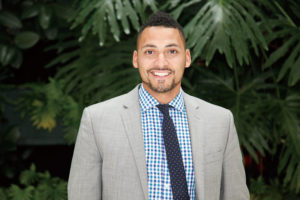In this new column, we ask counselors to cover a topic they might encounter with students in their schools. For this inaugural article, we reached out to Adrian Elmo, school counselor at Canadian International School of Beijing (CISB).
What constitutes as sexual harassment or abuse?
This can be murky at times, but I see sexual harassment as any unwanted sexual advances, statements, gestures, and so on, that make the person on the receiving end uncomfortable. This could also be viewed in terms of bullying. If the behavior has been noted as unwanted and still continues then that is harassment.
This should be distinguished from age appropriate flirtation or attraction. Although some may engage in a flirtatious way or express interest in another person, this should not be considered harassment unless the individual is informed that it is unwanted and asked to stop and does not. Abuse on the other hand is more physical in context and goes beyond advances or comments.
Abuse involves someone in a position of perceived or actual power or authority, taking advantage of someone to engage him or her in sexual activity.
When should a student come talk about such an issue?
In cases of possible harassment or abuse a student should talk to any trusted adult immediately. In these cases, if the person is uncomfortable and has yet to express that to the other party, they should still seek help.
Students, if you are struggling with ANY issue, you should reach out. A counselor or trusted adult can help you to process what has happened to you and who you can go to for support if they are not the most qualified to support you.
Is there a way a student can tell you something of this nature without telling you face to face?
Students can always contact me by e-mail or on my office phone. At times WeChat is used to correspond with students, however, if it is serious and you need immediate help, I would suggest speaking to me in person.
Situations of this nature often cause those impacted to feel embarrassed or responsible. You can be assured that counselors have experience or training to help in times like these and will not blame you and will manage the process sensitively with the victim’s best interest in mind.
If someone came to your office, what should be expected?
You can expect to be met by a calm listening ear. You can expect that I or another counselor will believe you and not judge or blame you for what has happened. You can expect that I will do whatever I can to help you.
You may experience emotions you were not expecting to feel before coming for help. This is normal. Counselors are generally comfortable with all types of emotions, and expression of emotion is healthy and can be therapeutic.
Would students need to meet more than once?
The number of times we meet really depends on the nature of the cause for the visit. Ultimately, you can have confidence that a counselor will meet with you as many times as necessary in order to help you solve your problem. Often times, even after an issue is “solved” a counselor may want to continue to meet in order to ensure that you have received everything you need from them.
What could possibly be accomplished in meeting with a school counselor?
In cases of abuse or harassment the ultimate goal would be to stop the abuse or harassment. Beyond that the goal would be to ensure that the individual has the skills they need to manage any future problems they may face and to process their experience in a positive and productive way. Depending on the severity of the abuse or harassment, continued counseling and support may be necessary.
How much of what at student shares should be confidential?
A student can expect that I will maintain confidentiality, meaning that what they tell me does not get repeated, unless they express an intent to harm themselves or someone else, if they are currently being abused, or know that someone else is being abused.
If this type of information is shared, the student can be comfortable in the fact that I will only share the information with the people who most need to know (those people who will play a vital role in solving the problem).
This often includes parents, school administrators, and possibly teachers. Again, who the information is shared with depends on the individual case.
What if the person causing the abuse or harassment is a student’s guardian?
In cases of domestic abuse the outcome is often not ideal. If the person that is abusive is a parent, counselors will attempt to resolve the problem, which at times may lead to the child being removed from the home or imprisonment on the part of the abuser. In international cases, when possible a counselor may work with embassies and the Chinese government to ensure that the abuse is terminated and that the child is protected from further harm.

Adrian Elmo is currently the school psychologist at the Canadian International School of Beijing (CISB), with six years prior experience in Washington State. Elmo has always been someone who others trust to talk to, but says, “My real interest in being a school psychologist stems from my own struggles as a student.”
As a child and young adult, he struggled with Attention Deficit Hyperactivity Disorder (ADHD). “My struggles with ADHD and later success in overcoming the symptoms associated with it have created a soft spot for students with disabilities and believe that due to my experiences as a child, I have a unique ability to build meaningful and productive helping relationships with children.”
If he were to ditch the education and mental health field, he would aim for a career as a vocalist, having sang the US national anthem at professional sporting events. Karaoke is his favorite way to pass the time, with volleyball and other team sports following after.

This article originally appeared on pages 38-39 of beijingkids 2017 February Issue. Download the digital version here.
Photos: Courtesy of CISB





1 Comment
Pingback: 话题|学生在校遭遇性骚扰,如何寻求老师帮助